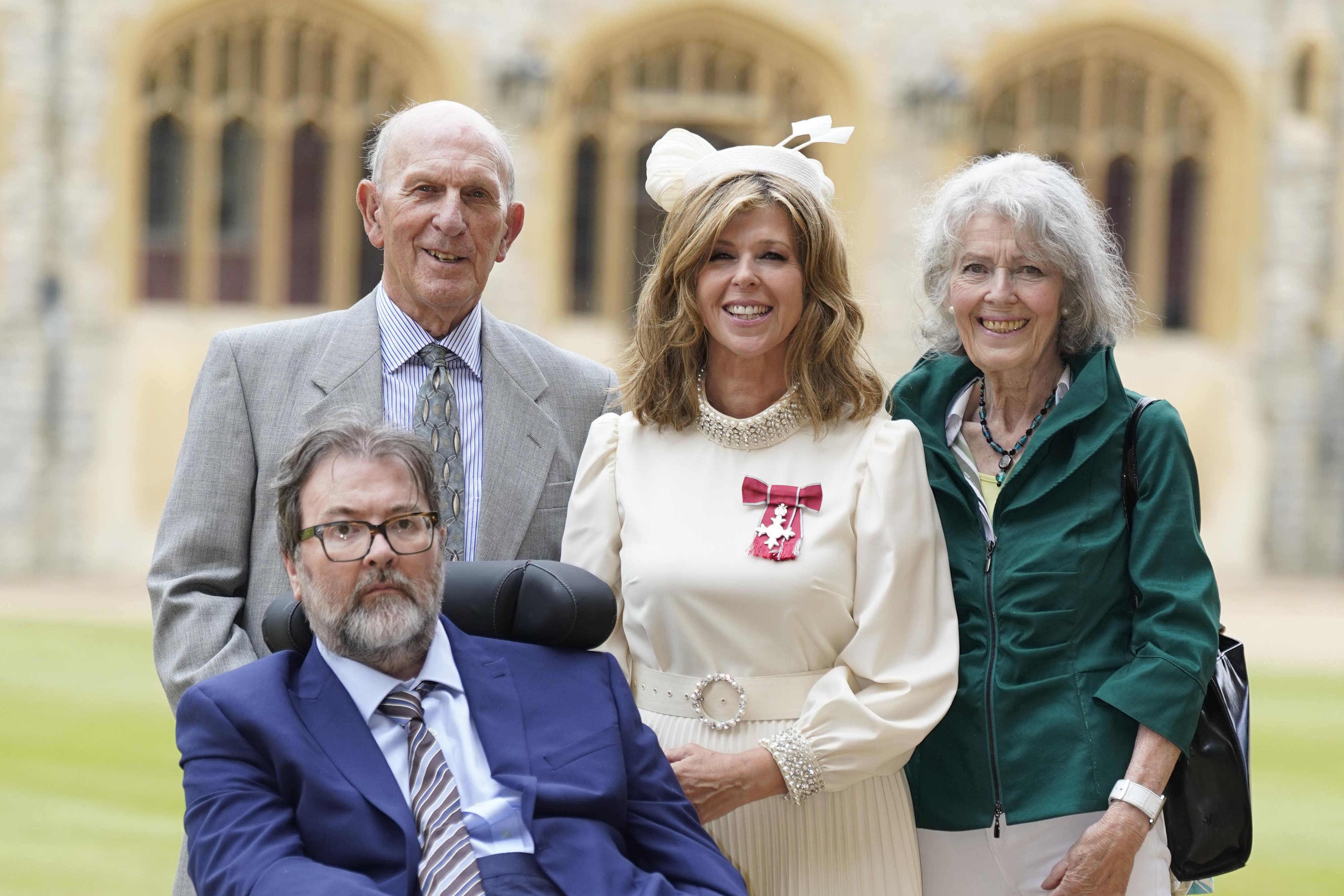How much does care cost in the UK? Shocking fees revealed after Kate Garraway shares huge debt
The TV presenter revealed the shocking cost of her late husband’s care in a new documentary
Your support helps us to tell the story
From reproductive rights to climate change to Big Tech, The Independent is on the ground when the story is developing. Whether it's investigating the financials of Elon Musk's pro-Trump PAC or producing our latest documentary, 'The A Word', which shines a light on the American women fighting for reproductive rights, we know how important it is to parse out the facts from the messaging.
At such a critical moment in US history, we need reporters on the ground. Your donation allows us to keep sending journalists to speak to both sides of the story.
The Independent is trusted by Americans across the entire political spectrum. And unlike many other quality news outlets, we choose not to lock Americans out of our reporting and analysis with paywalls. We believe quality journalism should be available to everyone, paid for by those who can afford it.
Your support makes all the difference.The cost of care in the UK has come under fresh scrutiny after Kate Garraway revealed she is in nearly £800,000 of debt following the long-term care of her late husband Derek Draper.
The TV presenter says her husband’s care cost £4,000 a week, or £16,000 a month. These fees would add up to £192,000 a year – nearly five times the average UK wage.
Speaking on a documentary filmed before her husband’s death, Kate Garraway: Derek’s Story, the TV presenter said: “I’m not going to pretend that I’m poorly paid. I have an incredible job that I love, which is well-paid. But it’s not enough.”
“How can anyone afford £16,000 per month?”

According the NHS England, the average cost of at-home care in the country ranges from £20.57 to £33.89 an hour. That would be £822.8 to £1355.6 per week. However, the cost varies considerably between individuals based on the kind of care they need.
“It’s entirely dependent on the level of need,” says Professor Martin Green OBE, Chief Executive of Care England.
“Let’s say you’ve got low-level needs, this is going to be much cheaper than if you have complex high-level needs and require 24/7 care.
“All those factors culminate in what can be significant cost to the individual or the public purse dependent on how it is being funded”.
Official figures also reveal large regional differences in the cost of care – referred to by Gallaway as a ‘postcode lottery’ in her documentary – broadly costing more in the South and less in the North, with some exceptions:
Prices are slightly different for care homes, which costs £800 a week on average for a place, and around £1,078 for a nursing home, where specialist care is needed.
For people who care for someone full-time (at least 35 hours), but are not working carers, the government offers the carer’s allowance. This is a maximum of £307 a month, which can be claimed alongside other benefits.
Under current legislation, adult social care is funded by local councils for individuals with savings of under £23,250. This limit is set to rise to £100,000 in October 2025. Following a needs and finance assessment, the council should pay towards your care partly or in full.
However, many local authorities are struggling to meet the dual pressures of increasing costs after inflation and rising demand for social care post-Covid.
As such, most councils in the UK (with adult social care responsibilities) have decided to raise their council tax rates by the maximum 5.99 per cent in April – and some by even more.
A report by Care England last year found that these pressures led to a funding gap of nearly £1.5bn, as local councils are not fully funding the cost of adult social care in their areas. Providers themselves have had no choice but to make this up.
“Local Authorities have had their funding cut by central government, leading to underfunded care packages, and a rising gap between fees paid and the cost of care caused by inflation,” said Professor Green.
“Without paying the fair cost of care, providers are forced to exit the market, leaving vulnerable people across the country without the proper support.”

Join our commenting forum
Join thought-provoking conversations, follow other Independent readers and see their replies
Comments